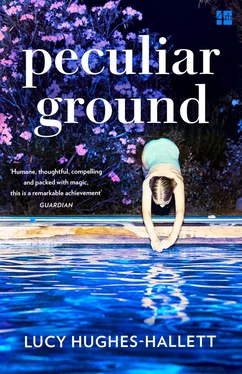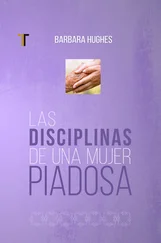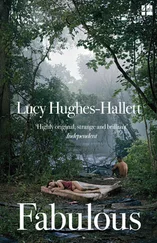It was as though Goodyear could see at once the prospect I sketched with my words, and soon we were in pleasant conversation. Willows, judiciously positioned, he rightly said, would bind the dams with their roots, and red alders might give shade. The ‘tremble-tree’, he suggested (I understood him to mean the aspen, a species of which I too am fond), ranged along the watery margins, would give a lightness to the picture, and his tremendous oaks, looming on the heights above, will take off the brashness of novelty, so that my lakes will glitter with dignity, like gaudy new-cut stones in antique settings.
How gratifying it would be to me, if I could enjoy such an exchange of ideas with his Lordship!
*
I could wish nutriment were not necessary to the human constitution, but alas, whatever else we be (and my mind swerves, like a wise horse away from a bog-hole, to avoid any thought that smacks of theology), we are indisputably animals, and animals must eat. My situation here is agreeable enough when I am in my chamber. In the drawing room – where Lord Woldingham expects me to appear from time to time – I am less easy. In the great hall where we dine I am wretched.
It is not the food that discommodes me, nor, to be just to the company, the mannerliness with which I am received. I am my own enemy. My self, of which I am pleasantly forgetful at most times, becomes an obstacle to my happiness. I do not know how to present it, or how to efface it. See how I name it ‘it’, as though my self were not myself. My Lord and his friends talk to me amiably enough. But the contrast between the laborious politeness with which they treat me, and the quickness of their wit in bantering with each other is painfully evident.
As I write this, I feel myself to be quite a master of language, so why is it that, in conversation, words fall from my lips as ponderously as dung from a cow’s posterior? I will be the happier when the guests depart, and so, I fancy, may they be. Although the old portion of the house has not yet been invaded by the joiners and masons, the shouting emanating all day long from the wing under construction is an annoyance. And now that the work on the wall has begun, the park is encumbered with wagons hauling stone to every point on its periphery. The quarrymen set to at first light. We wake to the crack of stone falling away from the little cliff, and our days’ employment has as its accompaniment the clangour of iron pick on rock.
One congenial companion I have found. She is a young lady, not staying in the house, but frequently invited to enjoy whatever entertainment is in hand. She came to me boldly outdoors today.
I had been conferring with Mr Green, who is the chief executor of my wishes for the garden. He is, I consider, as worthy of the name of artist as any of the carvers and limners at work on the house – but because he is tongue-tied, those precious gentlemen are apt to treat him as a mere digger and delver. His own men show him the utmost respect.
Those goldfish that so put me out of countenance on my arrival have proved the seeds from which a delightful scheme has sprouted. The stony paving of the terrace is to be bisected by a canal, within whose inky water the darting slivers of pearl and orange and carnation will show as brilliant as the striped petals, set off by a lustrous black background, in the flower-paintings my Lord has brought home with him from Holland.
‘I hear, Mr Norris, you are rationalising Wychwood’s enchanted spring,’ said the lady.
‘You hear correctly, madam. Some small portion of its waters will trickle beneath the very ground on which you now stand. More will feed a fountain in the valley there, if Mr Rose and I can manage it.’
‘But have you appeased the genius loci , Mr Norris? You cannot afford to make enemies in fairyland.’
I was taken aback. I could not but wonder whether she teased. Were she any other young lady I would have been sure of it. But she is as simple in her manner as she is in her dress. Her name is Cecily Rivers.
*
‘I am glad you and my cousin are friends,’ Lord Woldingham said to me this morning as I spread out my plans for him. He is my elder by a decade, and inclined to mock me as though I were a callow boy. We were in the fantastically decorated chamber he calls his office. Looking-glasses, artfully placed, reflect each other there. When I raised my eyes I could not but see the image of the two of us, framed by their gilded fronds and curlicues, repeated to a wearisome infinitude. I, Norris the landskip-maker, in a dun-coloured coat. He, who will flutter in the scene I make for him, in velvet as subtly painted as a butterfly’s wing seen under a magnifying glass.
I do not much like to contemplate my own appearance. To see it multiplied put me out of humour. My Lord’s remark was trying, too. Often when it comes to time for inspecting the plans he finds some conversational diversion. I did not know whom he meant.
‘Your cousin, sir?’
‘My cousin, sir. You can scarcely pretend not to know her. Pacing the lawn with her half the afternoon. I have my eye on you, Norris.’
He made me uneasy. He loves to throw a man off his stride. In the tennis court, which abuts the stables, I have seen the way he will tattle on – this painter is new come to court and he must have him paint a portrait of his spaniel; this philosopher has a curious theory about the magnetism of planetary bodies – until his opponent lets his racket droop and then, oh then, my Lord is suddenly all swiftness and attention and shouting out ‘ Tenez garde ’ while his ball whizzes from wall to wall like a furious hornet and his competitor scampers stupidly after it.
I had no reason to fumble my words but yet I did so. ‘Mistress Rivers. Your cousin. I did not know of the relationship.’
‘Why no. Why would you, unless she chose to speak of it?’
‘She lives hereby?’
‘Hereby. For most of her life she lived here.’
‘Here?’
‘Yes. In this house. Cecily’s mother was not of the King’s party. She stayed and prospered under the Commonwealth while her brother, my father, wandered in exile.’
‘And now . . .’
‘And now the world has righted itself, and I am returned the heir, and my aunt is mad, and her husband is dead, and my cousin Cecily is delightful and though I do not think she can ever quite be friends with me, her usurper, she has made a playmate of you.’
‘Your aunt is . . .’
‘The quickness your mind shows when you are designing hanging gardens to rival Babylon’s, Mr Norris, is not matched by its functioning when applied to ordinary gossip. Yes. My aunt. Is mad. And lives at Wood Manor. Hereby, as you say. And Cecily, her sweet, sober daughter, comes back to the house where she grew up, in order to taste a little pleasure, and to divert her thoughts from the sadness of her mother’s plight.’
I must have looked aghast.
‘Oh, my dear Aunt Harriet is not wild-mad, not frenzied, not the kind of gibbering lunatic from whom a dutiful daughter needs protection. My aunt smiles, and babbles of green fields and is as grateful for a cup of chocolate as one of the papists, of whom she used so strictly to disapprove, might be for a dousing of holy water. I am her dear nevvie. She dotes on me. She forgets that I am her dispossessor.’
It is true that yesterday afternoon Miss Cecily and I walked and talked a considerable while on the lawns before the house. Had I known my Lord was watching us I might not have felt so much at ease.
*
It is Lord Woldingham’s fancy to enclose his park in a great ring of stone. Other potentates are content to impose their will on nature only in the immediate purlieus of their palaces. They make gardens where they may saunter, enjoying the air without fouling their shoes. But once one steps outside the garden fence one is, on most of England’s great estates, in territory where travellers may pass and animals are harassed by huntsmen, certainly, and slain for meat, but where they are free to range where they will.
Читать дальше











